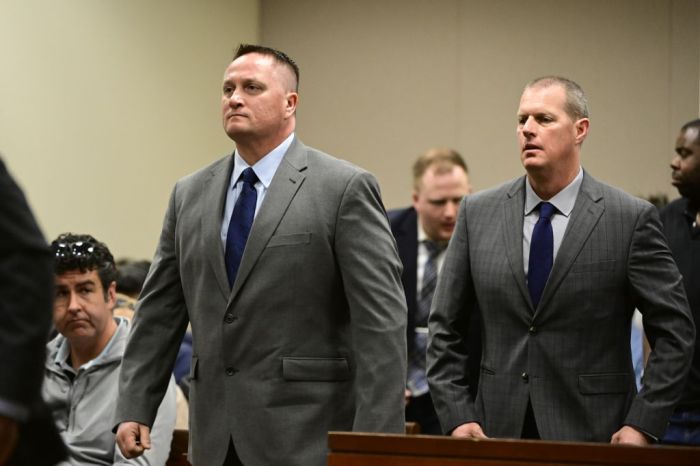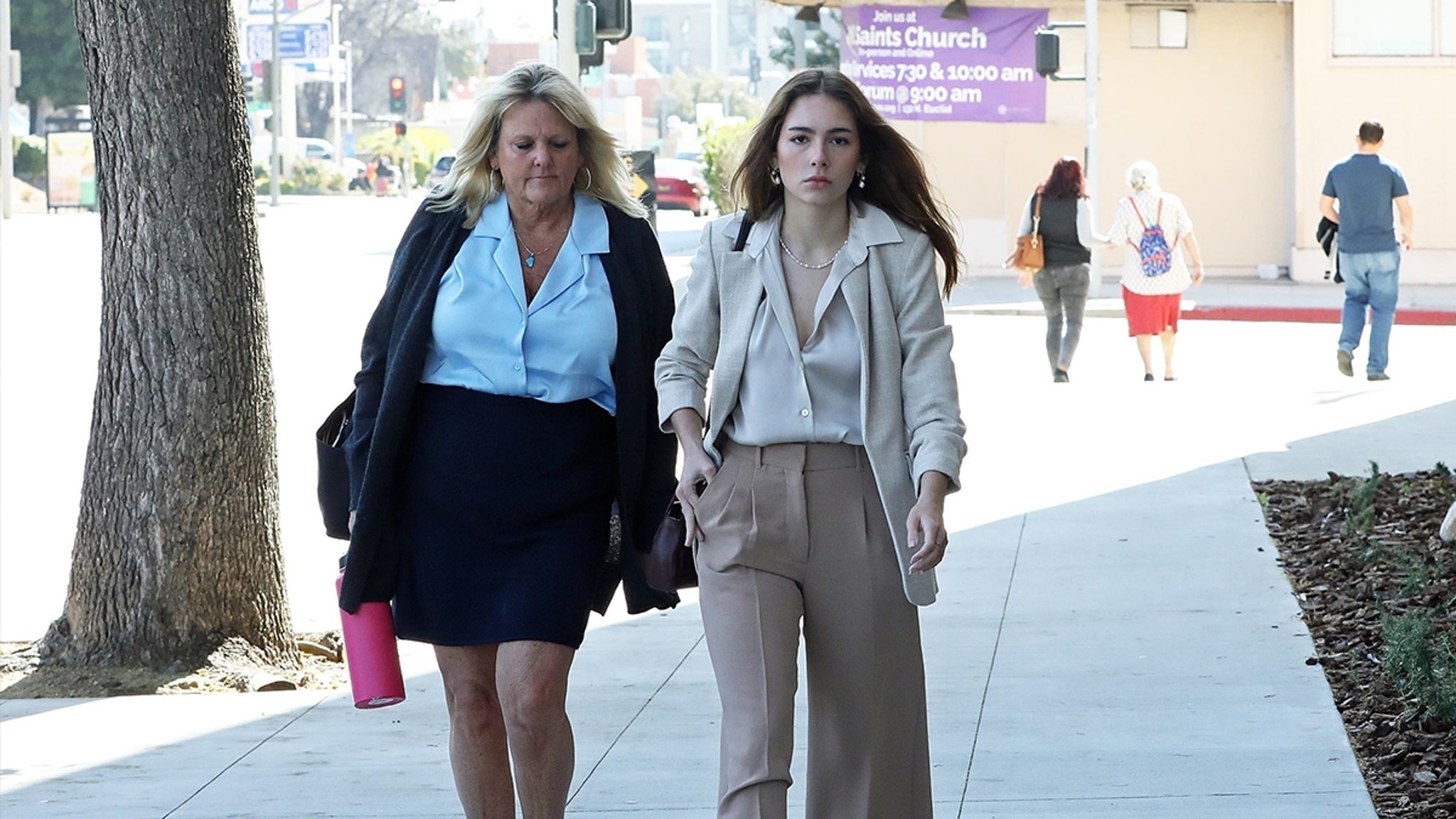Latest Sentencing in Elijah McClain’s Tragic Death
Source: Andy Cross/MediaNews Group/The Denver Post via Getty Images / Getty
The killing of Elijah McClain, who died from an overdose of ketamine while police restrained him, is still a case of justice denied after the former paramedic who sedated him has avoided prison.
A jury found former paramedic Jeremy Cooper guilty of criminally negligent homicide for administering the sedative. The charge carries up to three years in prison. Yet, Cooper only received a slap on the wrist for giving an innocent Black man a deadly dose of ketamine.
The AP reports Cooper received a 14-month sentence of work release and probation. This sentencing marks the last trial of the three cops and two paramedics that ended McClain’s life instead of protecting it.
Only two of the first responders lost their freedom for causing McClain to lose his life. Even those rare but shockingly light sentences hardly match the crime (or cruelty) if Black lives do indeed matter. Former officer Randy Roedema received 14 months in jail.
Former paramedic Peter Cichuniec got the longest sentence out of everyone involved. Cichuniec received five years in prison for criminally negligent homicide and second-degree assault because he drugged McClain without consent or medical necessity. It turns out racist fantasies of super strength or “excited delirium” while Black victims fight for their lives isn’t an actual emergency.
Background and Incident Overview
Source: Hyoung Chang/MediaNews Group/The Denver Post via Getty Images / Getty
Elijah McClain’s death occurred under harrowing circumstances in August 2019, in a Denver suburb. Aurora police stopped McClain while he walked home because someone reported he looked suspicious.
The massage therapist had broken no laws and wasn’t armed. For the imaginary crime of walking while Black, cops turned the situation deadly by placing him in a chokehold. When McClain rightfully panicked from the unlawful assault, they called in paramedics to sedate him with ketamine.
The long history of racist exaggerations about Black people’s strength, size, and inherent criminality led to McClain’s death. The paramedics did not address McClain’s complaints that he couldn’t breathe while cops held him down. Instead, they drugged him with enough ketamine for a 200-lb man, about 50% more than the recommended amount for McClain’s slim 143 lbs, according to the Guardian.
This incident not only caused McClain’s unnecessary death after suffering cardiac arrest on the way to the hospital. It also spurred widespread protests, especially following the 2020 racial justice protests ignited by George Floyd’s murder.
A Brief Timeline Of BOSSIP’s Coverage Of Elijah McClain’s Killing
**December 14, 2020**:
– Sheneen McClain’s interview on 60 Minutes discussed the misuse of ketamine and the hoax of “excited delirium” regularly used to justify it.
**September 1, 2021**:
– Grand jury indicts the three cops and two paramedics involved in Elijah McClain’s death.
**September 16, 2021**:
– Expanded details of the investigation into the Aurora Police Department confirming patterns of racially biased policing and excessive force.
**October 20, 2021**:
– Announcement of a settlement reached between Elijah McClain’s family and the City of Aurora.
**July 21, 2022**:
– A Colorado judge ruled that police officers and paramedics behind Elijah McClain’s death could face criminal charges.
**September 26, 2022**:
– The autopsy report for Elijah McClain was updated to indicate the ketamine injection caused his death.
**September 18, 2023**:
– Beginning of the trial for police officers Randy Roedema and Jason Rosenblatt with jury selection.
**October 13, 2023**:
– Conviction of Randy Roedema for negligent homicide and third-degree assault.
**October 25, 2023**:
– Sheneen McClain reacts to split verdict after Jason Rosenblatt’s acquittal.
**November 7, 2023**:
– Acquittal of Officer Nathan Woodyard from homicide and manslaughter charges related to McClain’s death.
**November 29, 2023**:
– Officer Nathan Woodyard was reinstated with more than $200,000 in backpay after being acquitted of manslaughter and criminally negligent homicide.
**December 26, 2023**:
– Convictions of two paramedics, Peter Cichuniec and Jeremy Cooper, for criminally negligent homicide related to McClain’s death.
Judicial Outcomes and Public Reaction
Source: Hyoung Chang / Getty
The trials related to McClain’s death have stretched over seven months, with varying degrees of accountability being handed down to the officers and paramedics involved.
Cichuniec will serve the most time for ordering the ketamine overdose, but still received the minimum sentence for his conviction. His union was more concerned about the prosecution discouraging firefighter and paramedic recruitment than their racial bias costing innocent lives.
The public reaction has been one of mixed grief and outrage, with many seeing these legal actions as insufficient in addressing the systemic issues at play.
Elijah’s mother vocally expressed her disappointment in the justice system, condemning the actions of those involved and the subsequent legal outcomes.
During the sentencing, she stated, “Eternal shame on all of you.”
Legislative and Community Impact
In response to the outcry from police brutality like McClain suffered, significant legislative changes have been made.
Notably, the use of sedatives like ketamine by paramedics came under fire. Substantial legislative action against police neckholds and chokeholds followed in many states, including Colorado.
Personal Apologies and Family’s Response
Source: Andy Cross/MediaNews Group/The Denver Post via Getty Images / Getty
During the hearing, Jeremy Cooper personally apologized to Elijah McClain, saying, “I never, ever meant for anyone to hurt you.”
However, this apology did little to console McClain’s family, with his mother walking out during his statement.
Looking Forward: Implications for Policing and Medical Practice
Elijah McClain’s case highlighted the role of medical personnel in policing, especially regarding the administration of drugs like ketamine.
AP News investigated the dangers of sedating individuals during police restraints. The practice resulted in at least 94 fatalities from 2012 to 2021 and disproportionately affected Black individuals.
This has led to calls for more stringent controls and training for paramedics involved in police operations to address these preventable tragedies.
Conclusion: A Community’s Quest for Justice
The story of Elijah McClain is a poignant reminder of the ongoing challenges in achieving justice and equity, especially within communities of color.
The lackluster legal consequences underscore the remaining need to reform policing and medical interventions that cause unnecessary death.
Our condolences go out to the family of Elijah McClain, who should have survived his walk home from work in 2019.







